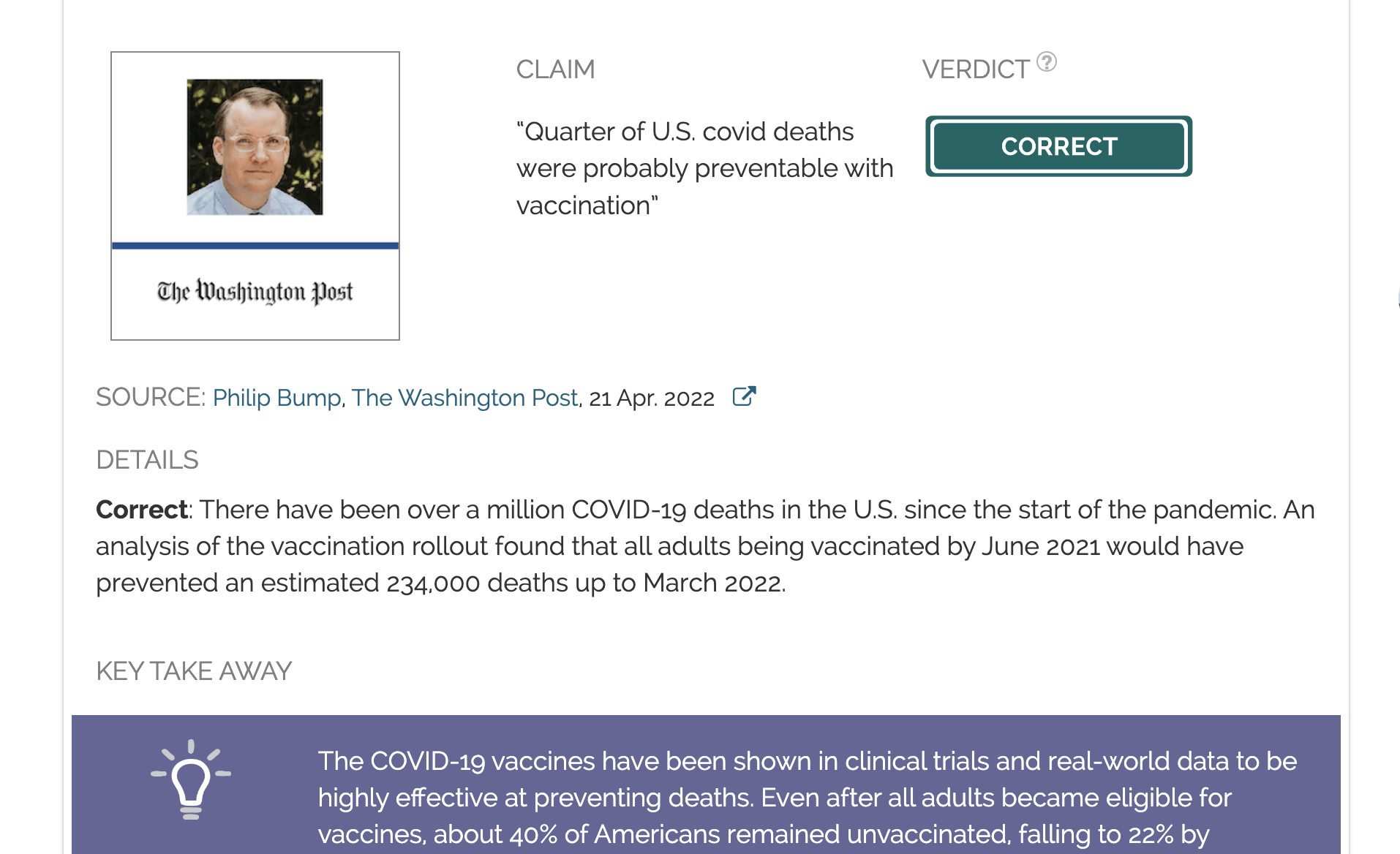
Complete vaccine coverage in the U.S. could have prevented almost a quarter of COVID-19 deaths
Claim:
“Quarter of U.S. covid deaths were probably preventable with vaccination”
Reviews of content from

Claim:
“Quarter of U.S. covid deaths were probably preventable with vaccination”
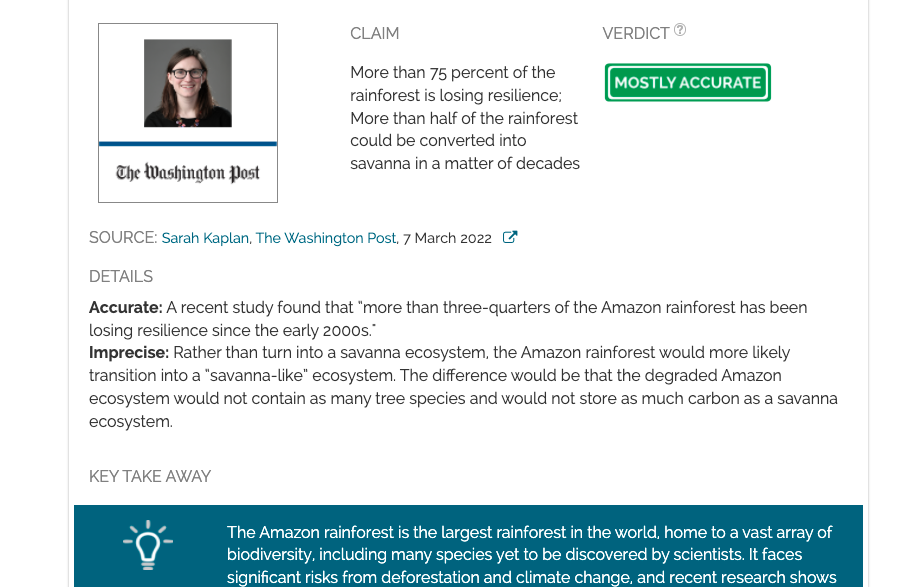
Claim:
More than 75 percent of the rainforest is losing resilience; More than half of the rainforest could be converted into savanna in a matter of decades
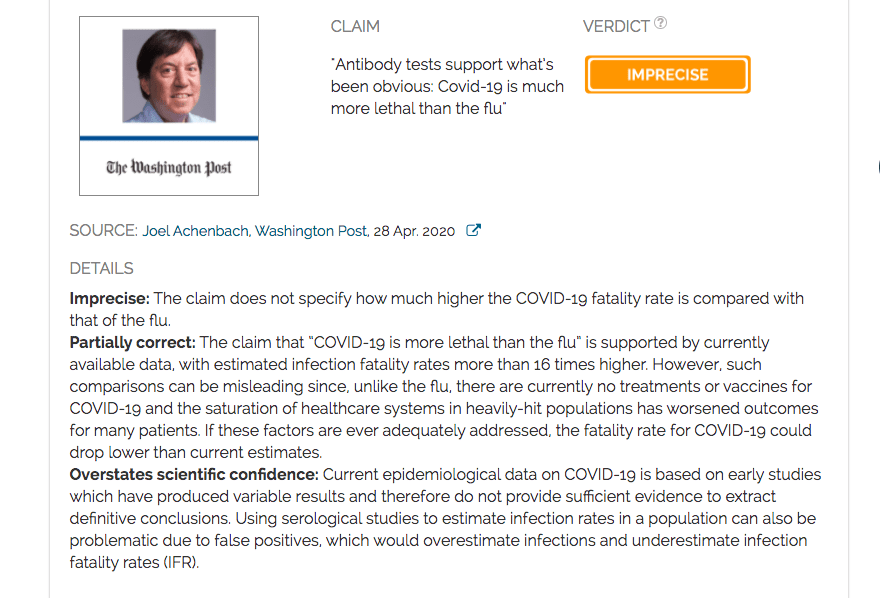
Claim:
Antibody tests support what’s been obvious: Covid-19 is much more lethal than the flu
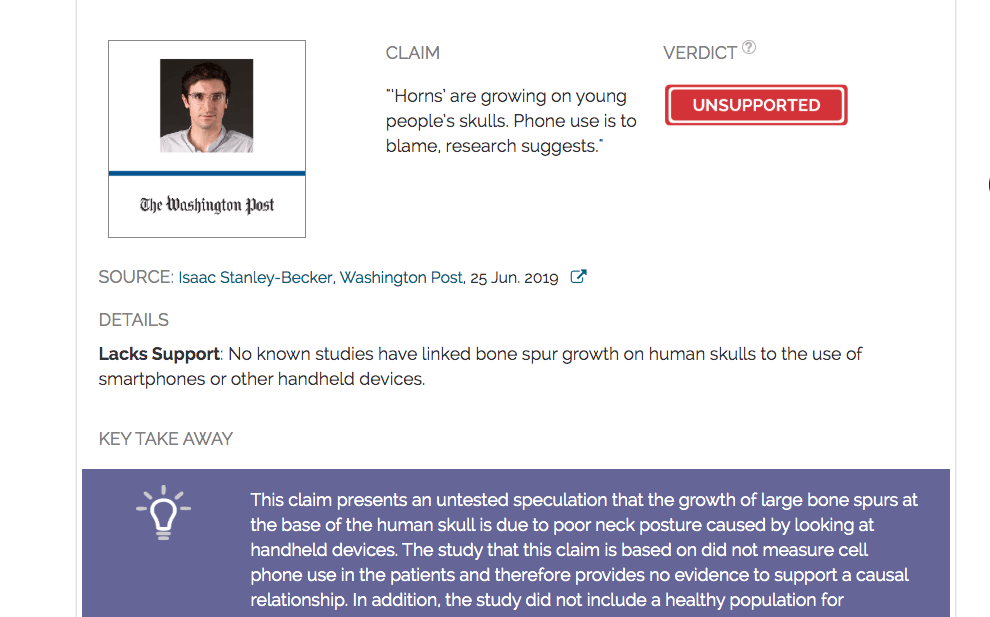
Claim:
‘Horns’ are growing on young people’s skulls. Phone use is to blame, research suggests.
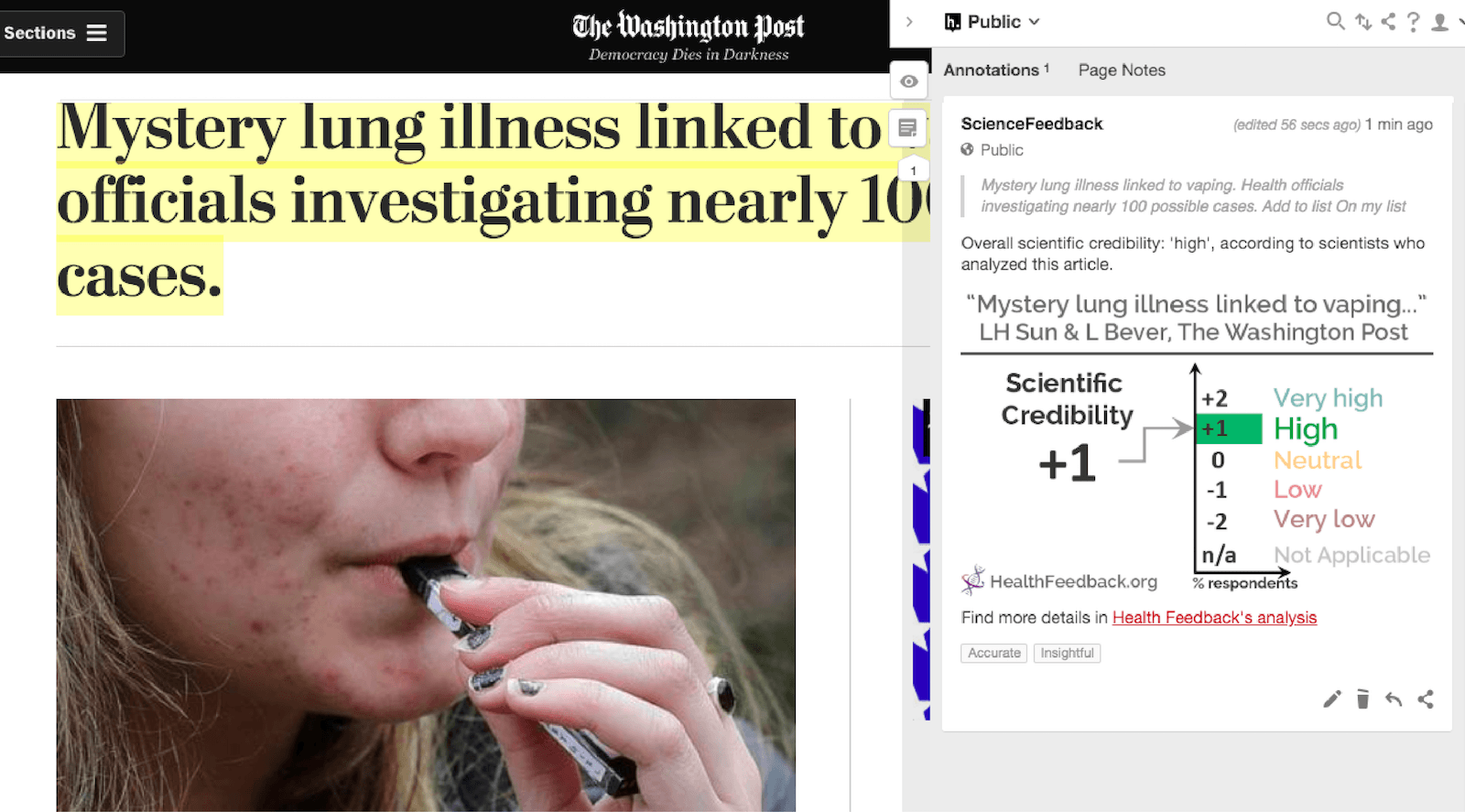
“At the moment, it is not possible to know if these pulmonary diseases are related to propylene glycol, glycerol, nicotine, flavorings, or more likely, synthetic/natural drugs sometimes added to e-liquids. Although vaping has deleterious effects on the lungs, e-cigarette vaping has been shown to be safe for over 10 years now… I firmly believe that this new epidemic is linked to synthetic cannabinoids, which unfortunately could be popular among young people”
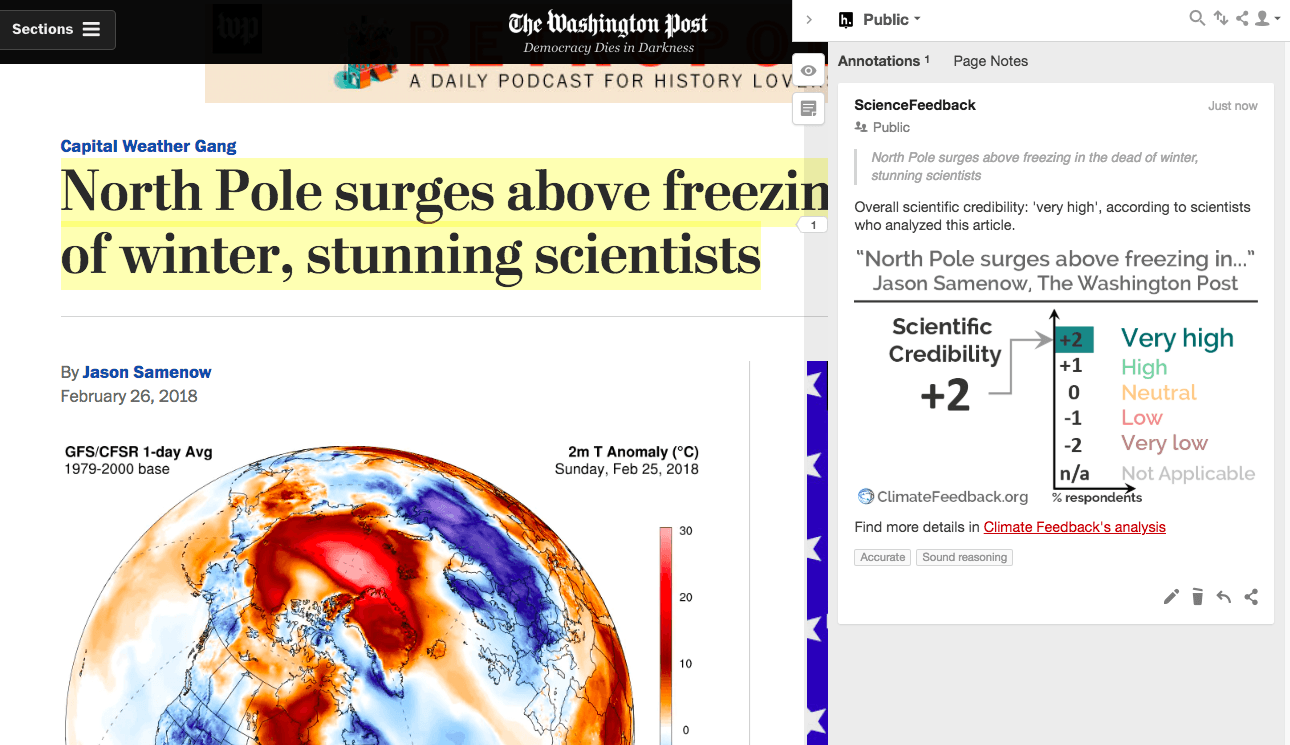
“This article accurately describes the Arctic warming event and associated surprise by scientists, includes multiple explanations for possible causes, and does not overstate any connections to climate change, pointing out that more data is needed to know if these above-freezing events will be a new Arctic normal.”
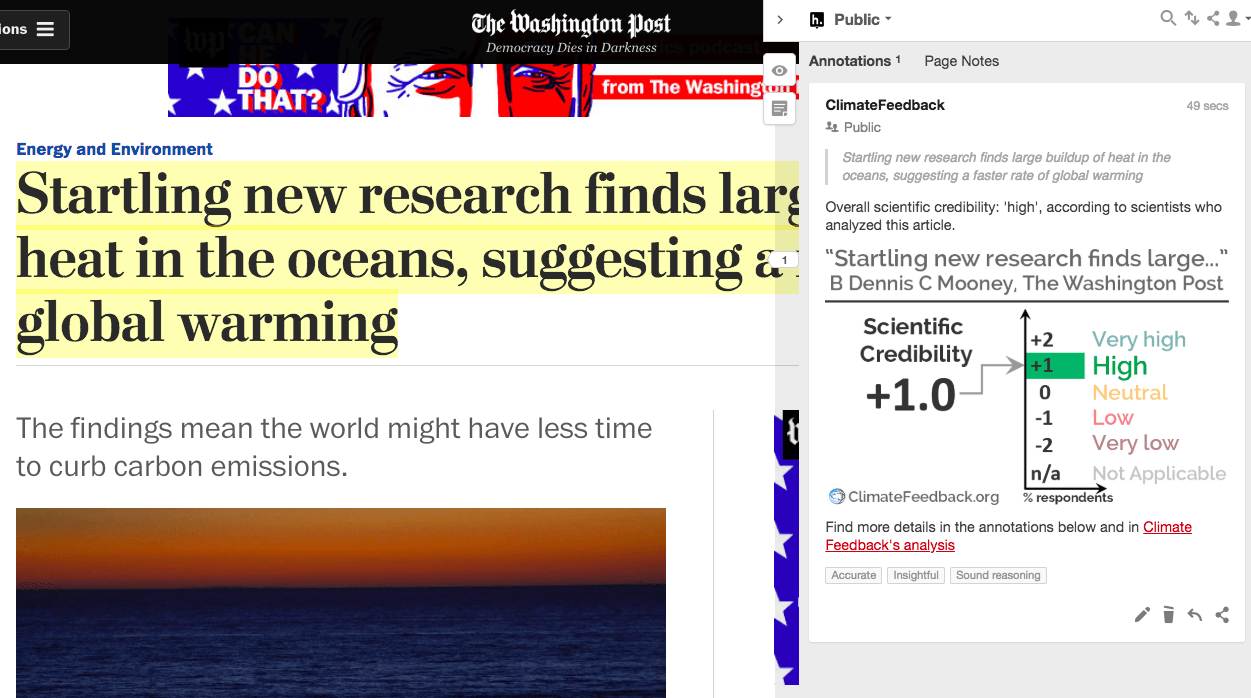
“The Washington Post article accurately reports the results and links to other topics using reliable sources. Quotations from Pieter Tans and Paul Durack add important caveats showing that this is strong new evidence but not the final say. This caution is vital for readers to interpret the findings.”
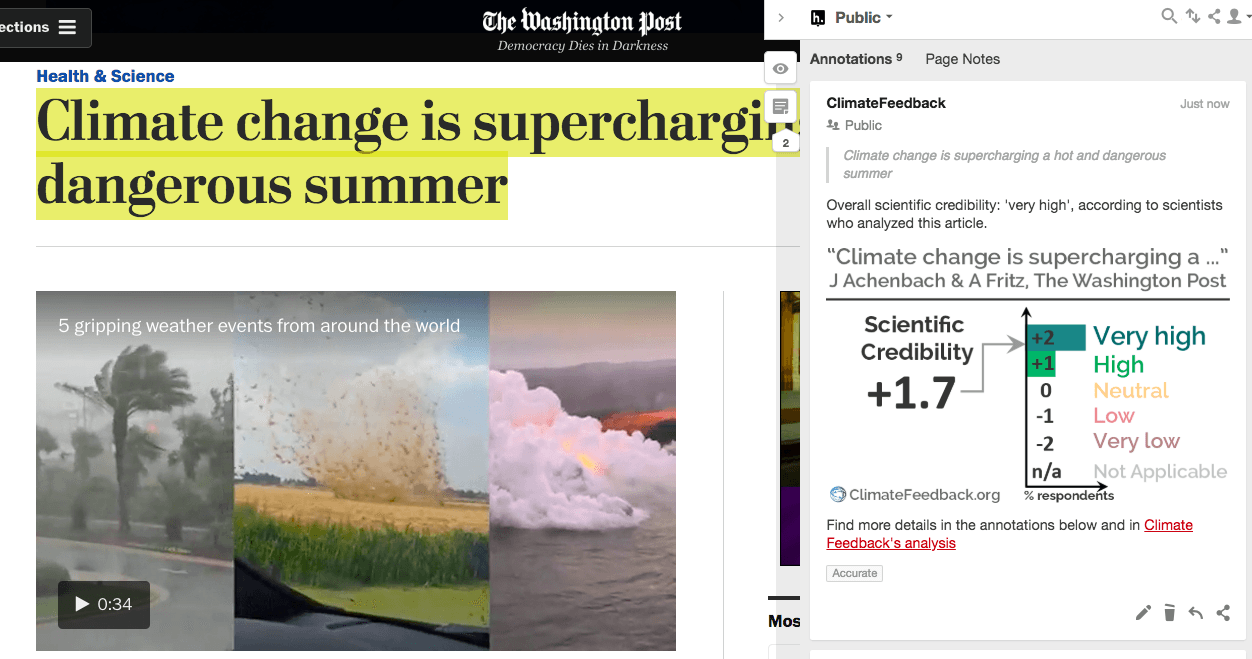
“This article accurately describes the broader climate context of recent heat extremes throughout the Northern Hemisphere. There are a couple spots where specific claims are somewhat stronger than justified by the existing scientific evidence, but in general the piece gives an accurate impression regarding the role of climate change and recent advances in extreme event attribution science.”
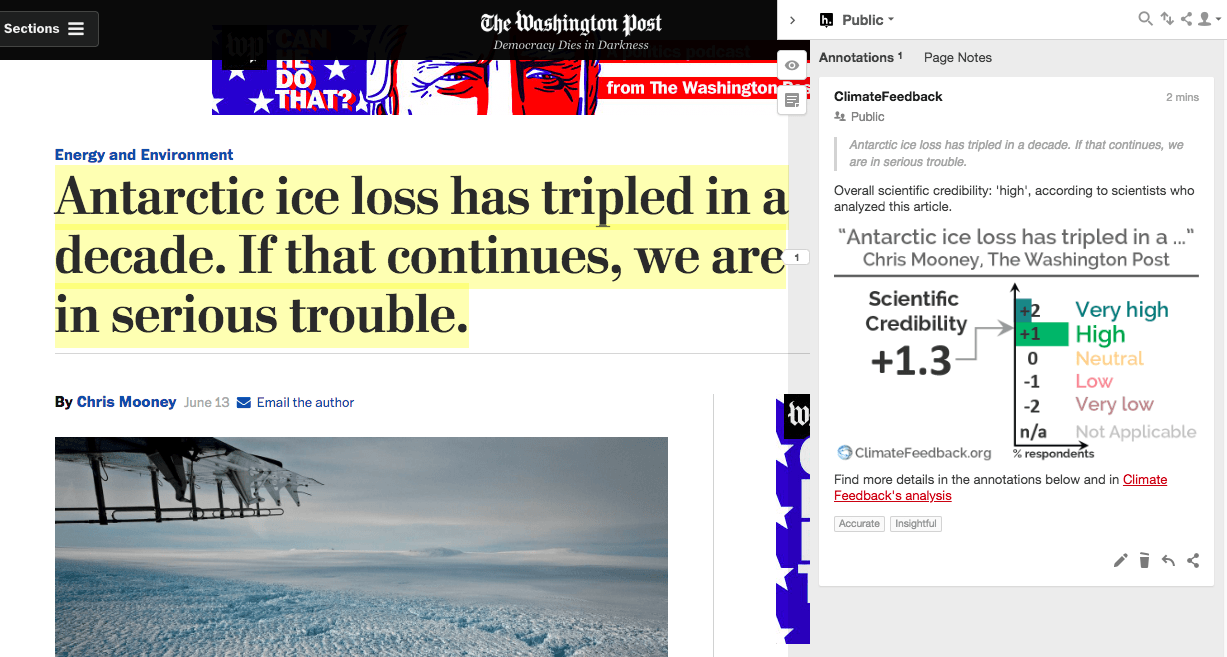
“The article presents the results of the study accurately, and uses multiple comments from scientists both involved and not-involved in the study to highlight the key findings. Some of the explanations are simplified, and there is a slight attempt at the end to downplay the results by suggesting scientists can’t predict the future. It is correct that the study presented is not making predictions, rather documenting past changes, but the positive trend is what we would expect based on the longer record of change we have for glaciers and ice caps.”
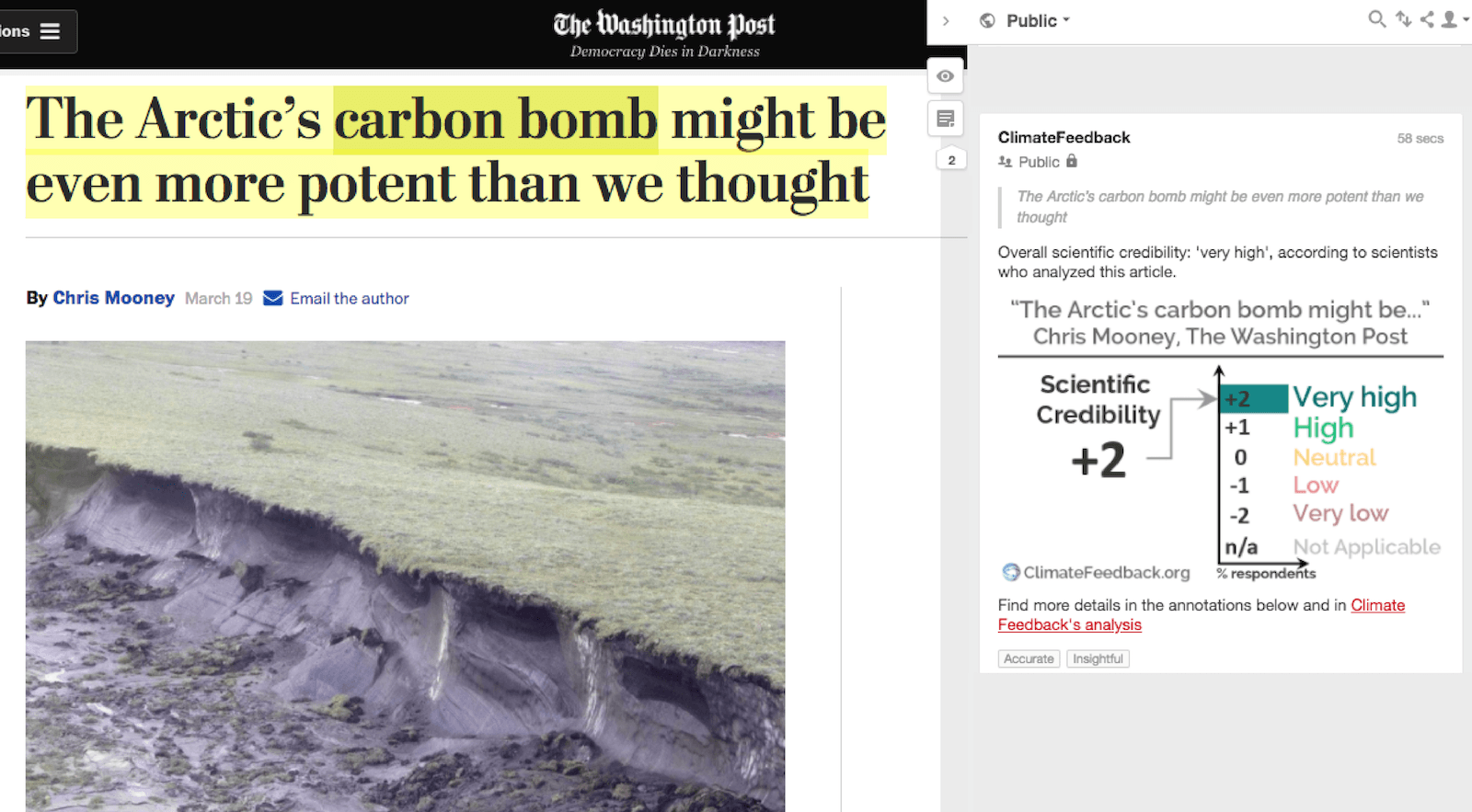
The article accurately described a study indicating that more of the carbon released from thawing permafrost will be released as methane and provided context on its overall implications by quoting comments from two other researchers. The article’s headline, however, may mislead readers through the use of the sensational phrase “the Arctic’s carbon bomb”, which calls to mind a catastrophic, explosive release of greenhouse gas.